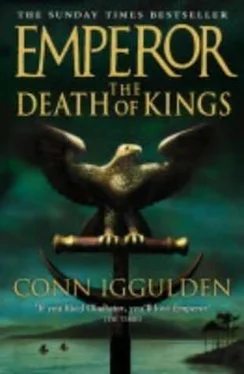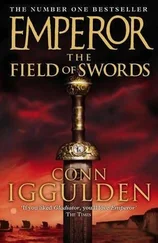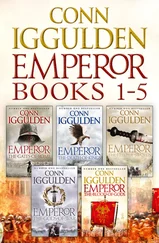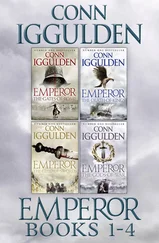After a time, he stood and walked stiffly into his house. Time passed and a woman screamed in grief.
Mithridates looked out into the dawn mists, wondering if another attack would come. He pulled his heavy cloak around his shoulders and shivered, telling himself it was just the morning cold. It was hard not to feel despair.
The night attacks had grown in daring and hardly anyone slept easily in the sprawling camp anymore. Each evening, they would decide the sentries with lots, and those who were chosen would turn their red-rimmed eyes to each other and shrug, already expecting death. If it did not come, they would walk back into the protection of the main camp with a return of confidence that would last until they next took the wrong token from the pot as it was passed around.
Too often they did not return. Hundreds of sentries missed the roll call each dawn. Mithridates was sure more than half were quietly deserting him, but it looked as if the camp was surrounded by an invisible enemy who could pick and choose each kill at a whim. Some of the sentries were found with arrow wounds, the barbs carefully taken from their flesh to be used again. It did not seem to matter how many men stood watch together, or where he placed them, each day brought fewer men back into the camp.
The king glared into the damp mist that seemed to clog his lungs with winter cold. Some of his men believed they were being attacked by the ghosts of old battles, spreading tales of ancient white-bearded warriors glimpsed for a moment before they disappeared, silently. Always in silence.
Mithridates began to pace along the line of his men. As exhausted as their king, they nonetheless had their weapons ready and stood alertly waiting for the mist to lift. He tried to smile at them and lift their morale, but it was hard. The impotence of having lives whittled away for week after week had taken the heart out of too many of his men. He shuddered again and cursed the white mist that seemed to linger over the tents while the rest of the world woke. Sometimes he thought if he could just find a horse and ride quickly away, he would break into sunshine and look back to see only the valley covered in the shroud.
A body lay untouched between tents. The king paused and looked down at it, angry and ashamed that the young warrior had not been buried. That, even more than the listless stares of his men, told him how far things had gone since they first staked the hills and toasted success and the destruction of Rome. How he hated that name.
Perhaps he should have marched his army away, but always came the nagging thought that moving them onto the plains was what the enemy hoped for most of all. Somewhere, hidden from his scouts, was a legion of men with a commander who was like no one Mithridates had ever met. He seemed to want to destroy them in pieces. Sudden flights of arrows would spit the bodies of anyone wearing an officer's helmet or carrying a standard. It had reached the point where men had refused to take up the flags and bore the punishment whipping rather than invite a death they saw as inevitable.
It was an evil thing to watch the morale fall from such heights. He'd given orders to the groups of sentries to kill any man who tried to desert, but even more had disappeared the night after, and he still didn't know if they were dead or had run away. Sometimes he would see just a pile of their armor, as if they had shrugged off the metal with their honor, but occasionally the piles were spattered with blood.
Mithridates the king rubbed his tired face roughly, bringing color to his cheeks. He couldn't remember the last time he had slept, not daring drunkenness now, with the chance of attack at any time in the night. They were like ghosts, he thought leadenly. Deadly, quick-moving spirits that left white flesh on the grass behind them.
His sons had worked out units of reinforcement, so that there were always fresh fighters in support, but it hadn't worked. Mithridates wondered if his men were hanging back, unwilling to be the first to reach the enemy and be killed. When the Romans had vanished, the reinforcements would arrive with a great roaring and crashing of shields and swords, forming rings around the wounded and shouting insults into the night, but it seemed like a futile kind of spite, a coward's final blow or sneer when safe.
The mist began to thin and Mithridates pinched his cheeks with his powerful thumbs to ward off the cold. Soon he would receive the night's report of sentries lost, and he hoped it would be one of those times when every man arrived back dazed at their good fortune, staggering from the relief after hours of tension and fear. Those were rare nights now.
On one occasion, he had tried to ambush the enemy with a force of a hundred hidden near two of the sentry positions. Every one of them had been found long dead and cold the following day. After that, he hadn't tried again. Ghosts.
A breeze lifted around him and he pulled his cloak even tighter. The mist swirled and boiled away in minutes, revealing the dark plain. Mithridates froze in fear as he saw the lines of soldiers waiting in silence. Perfect ranks of legionaries, their armor glittering painfully in a silver blur. Two cohorts. A thousand men. Two thousand feet away, waiting for him.
His heart thudded painfully under the wide muscles of his chest, making him feel light-headed. He heard the shout go through the camp as his surviving officers roused the men to stand and run to their positions. Panic touched him then. A thousand men on one side. Where were the rest?
“Send out the scouts!” he bellowed. Runners raced to the backs of horses, galloping through the lines of the camp.
“Archers to me!” he continued, his order passed down the line. Hundreds of bowmen began to converge on the cloaked figure. He gathered their officers around him.
“It'll be a ruse, a trick. I want you to protect this side of the camp. Send every shaft you have at them to keep them away. Kill them all if you can. I will guard the head, where the main attack must come. Spend every arrow without stinting. They must not hit our rear as the others attack. Morale would not survive it.”
The officers nodded and bowed, stringing their bows expertly even as they straightened up. Their faces showed the first touches of excitement, the joy of power that comes from sending death in stinging swarms while your own men stand safe.
Mithridates left their units to form and took his horse from the groom that held it, cantering through the camp to the head. The despair lifted from him and he sat straighter in the saddle as he saw his men standing ready all around. It was day and even ghosts could be killed in the day.
***
Julius stood in the right flank of the veterans, at the head of Ventulus cohort. Three lines of one hundred and sixty men stood with him; six centuries of eighty, with the veterans in the first and third and the weakest fighters in the second rank, where they could not waver or run. With Gaditicus and the men of Accipiter, they covered nearly a mile of land, silent and still. There were no more games to be played. Every one of the Wolves knew they could be dead before the sun was high, but they stood without fear. Their prayers were all said and now there was only the killing to come.
It was bitterly cold and some of the men shivered as they waited for the mist to lift. They did not speak and it was not even necessary for the newly appointed optios to crack their staffs into any of the younger men to keep them quiet. They all seemed to sense the moment, as the mist finally moved on a freshening breeze. Their heads came up almost like dogs with a scent, knowing the effect the sight of them would have.
Some of the veterans had wanted to charge while the morning mist was still thick, but Julius had told them he wanted the enemy to know fear before the final attack, and they had accepted his orders without question. After three weeks of destructive attacks on the camp, they looked with something like awe on the young commander as he marched alongside them. He seemed to be able to guess every move that Mithridates would make and counter them brutally. If Julius said it was time for one last open blow to break the Greeks, they would march where he marched, without complaint.
Читать дальше
Конец ознакомительного отрывка
Купить книгу












